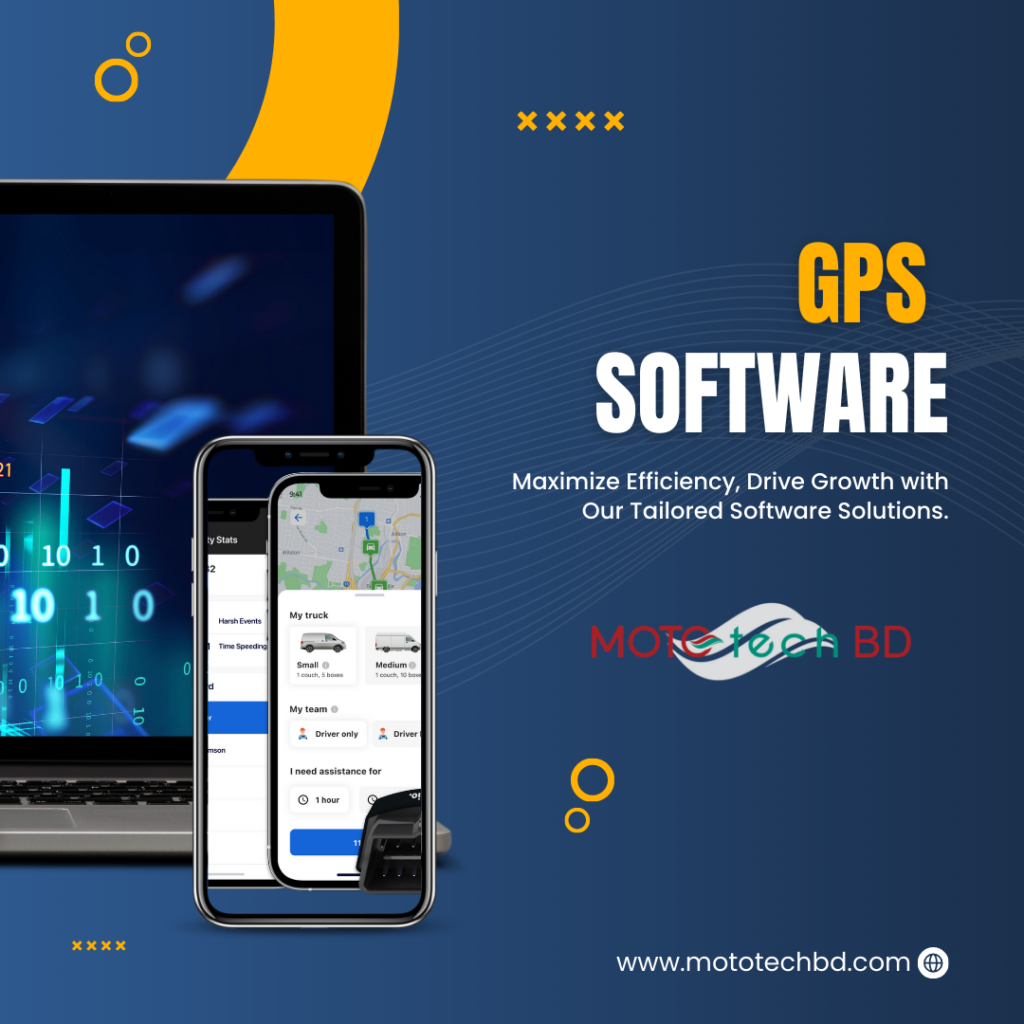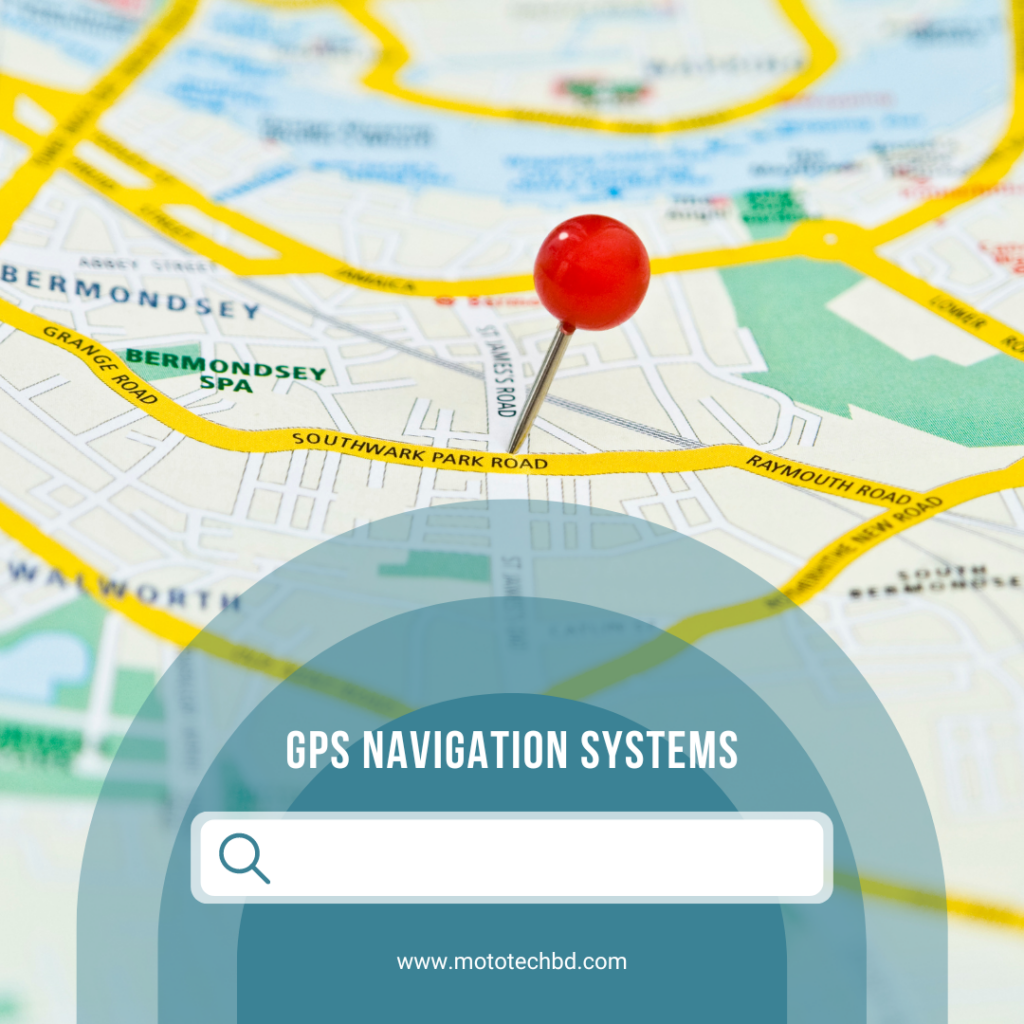Efficient fleet management is crucial for businesses that rely on multiple vehicles for operations, whether it’s delivery trucks, service vans, or corporate cars. Fleet management GPS systems are a game-changer in this regard, offering real-time tracking, route optimization, and driver behavior monitoring. In this post, we will dive into the role of GPS technology in fleet management, its benefits, and how it can help optimize your business operations.
What is Fleet Management GPS?
Fleet management GPS refers to the use of GPS technology in managing a group of vehicles efficiently. These systems allow businesses to track the real-time location of each vehicle, monitor routes, ensure driver safety, and gain insights into vehicle performance. The data collected can then be used to optimize operations, reduce fuel costs, and increase productivity.
How Fleet Management GPS Systems Work
Fleet management GPS systems work through a combination of GPS devices installed in vehicles, satellite signals, and software platforms that provide data to fleet managers. Here’s how it operates:
- GPS Device Installation: Each vehicle is equipped with a GPS tracker that communicates with satellites to determine its exact location.
- Data Collection: The system collects data such as vehicle speed, routes, engine diagnostics, and more.
- Transmission of Data: The data is sent to a central server where it is processed and displayed on a dashboard, providing real-time insights.
- Accessing the Information: Fleet managers can access this information via a web platform or mobile app, enabling them to monitor their fleet remotely.
Key Benefits of Fleet Management GPS
- Real-Time Vehicle Tracking
With fleet management GPS systems, you can view the exact location of every vehicle in your fleet at any time. This helps improve dispatch efficiency, ensuring that vehicles are on the best possible routes and that customers receive accurate delivery times. - Route Optimization
GPS systems offer route optimization features that help drivers avoid traffic jams, roadblocks, and other obstacles. By selecting the most efficient routes, businesses can save on fuel costs, reduce delivery times, and boost customer satisfaction. - Driver Behavior Monitoring
Fleet management GPS systems allow you to monitor driver habits such as speeding, harsh braking, and idling. This data is essential for improving driver safety and reducing accidents, ultimately lowering insurance costs. - Fuel Efficiency
Fuel costs are one of the largest expenses for fleet operations. By tracking and analyzing driver behavior, vehicle usage, and routes, GPS systems help reduce fuel consumption, saving businesses money in the long run. - Maintenance Management
GPS systems can track vehicle diagnostics, helping fleet managers stay on top of maintenance schedules. Alerts for issues such as engine problems or low tire pressure ensure that vehicles are kept in good condition, reducing downtime and repair costs.
Applications of Fleet Management GPS
- Delivery and Logistics
Delivery and logistics companies rely on fleet management GPS systems to ensure timely deliveries, optimize routes, and provide accurate ETAs to customers. Real-time tracking allows businesses to communicate effectively with customers and improve service quality. - Field Service Management
For businesses that provide field services—such as repair, installation, or maintenance services—GPS systems help optimize technician deployment, reduce travel time, and improve productivity. - Public Transportation
Fleet management GPS is widely used in public transportation to monitor buses, taxis, and ride-sharing services. It helps improve route planning, minimize delays, and ensure passenger safety. - Construction and Heavy Equipment
In the construction industry, fleet management is used to track heavy equipment and vehicles, ensuring that machinery is being utilized effectively and remains within designated areas, reducing the risk of loss or theft.
How Fleet Management GPS Improves Operational Efficiency
- Streamlined Dispatching
Fleet management GPS systems streamline dispatch operations by providing real-time data on vehicle locations and availability. This allows dispatchers to assign jobs more effectively and ensures that vehicles are being used to their full capacity. - Improved Communication
By integrating GPS systems with communication tools, fleet managers can stay in constant contact with drivers. Real-time updates and instructions can be sent directly to drivers, ensuring that they are always aware of any changes to routes or schedules. - Lower Operating Costs
The insights provided by fleet management GPS systems help businesses make data-driven decisions. By optimizing routes, reducing idle time, and ensuring regular vehicle maintenance, companies can lower operating costs significantly. - Customer Satisfaction
With accurate delivery times, real-time tracking updates, and improved service efficiency, businesses can offer better customer experiences. Fleet management GPS systems enable businesses to provide accurate ETAs and update customers on the status of their deliveries.
Top Features of Fleet Management Systems
- Geofencing
Geofencing allows fleet managers to set virtual boundaries around specific locations. Alerts are triggered when a vehicle enters or exits a designated area, which helps prevent unauthorized use and keeps vehicles within operational zones. - Driver Scorecards
Driver scorecards provide insights into individual driver performance based on data collected from the GPS system. Fleet managers can use this information to reward top-performing drivers or offer additional training to those who need improvement. - Maintenance Alerts
Fleet management systems can be programmed to send automatic maintenance alerts based on vehicle usage or time intervals, helping to prevent breakdowns and extending the life of the fleet. - Fuel Usage Reports
With GPS systems, fleet managers can generate fuel usage reports that show how much fuel each vehicle consumes and highlight inefficiencies. These reports are key to reducing fuel expenses and improving overall fleet performance. - Historical Route Data
Many GPS systems store historical route data, allowing fleet managers to review past routes and identify areas for improvement. This data helps refine operations and make informed decisions about future routes and schedules.
Choosing the Right Fleet Management System
When selecting a GPS system for your fleet, consider the following factors:
- Scalability: Ensure that the system can grow with your business.
- User Interface: Choose a system with an intuitive, user-friendly interface.
- Real-Time Alerts: Opt for a system that provides real-time alerts for events such as speeding, maintenance needs, and geofencing violations.
- Integration: Check if the system integrates with other business tools such as fuel management software or maintenance platforms.
- Customer Support: Reliable customer support is essential for troubleshooting and maximizing system usage.
Top Fleet Management Systems Available
- TrackersBD Fleet GPS System
This all-in-one fleet management solution offers real-time tracking, geofencing, and detailed driver performance analytics. It’s perfect for businesses in Bangladesh looking to optimize their fleet operations. - Samsara Fleet Management GPS
Samsara offers a cloud-based GPS system that combines real-time tracking, fuel management, and driver behavior analytics in one easy-to-use platform. - Teletrac Navman
Teletrac Navman provides a comprehensive fleet management system that includes GPS tracking, route optimization, and maintenance scheduling, helping businesses run their fleets more efficiently. - Geotab Fleet Tracking
Geotab is known for its advanced fleet management solutions, offering real-time tracking, driver safety reports, and engine diagnostics to keep your fleet running smoothly.
Conclusion:
Investing in a fleet management GPS system can significantly improve your business operations by optimizing routes, reducing fuel consumption, and ensuring driver safety. Whether you manage a small or large fleet, these systems provide the tools and insights needed to boost efficiency, lower costs, and improve overall productivity.


 YAMAHA
YAMAHA SUZUKI
SUZUKI HONDA
HONDA








